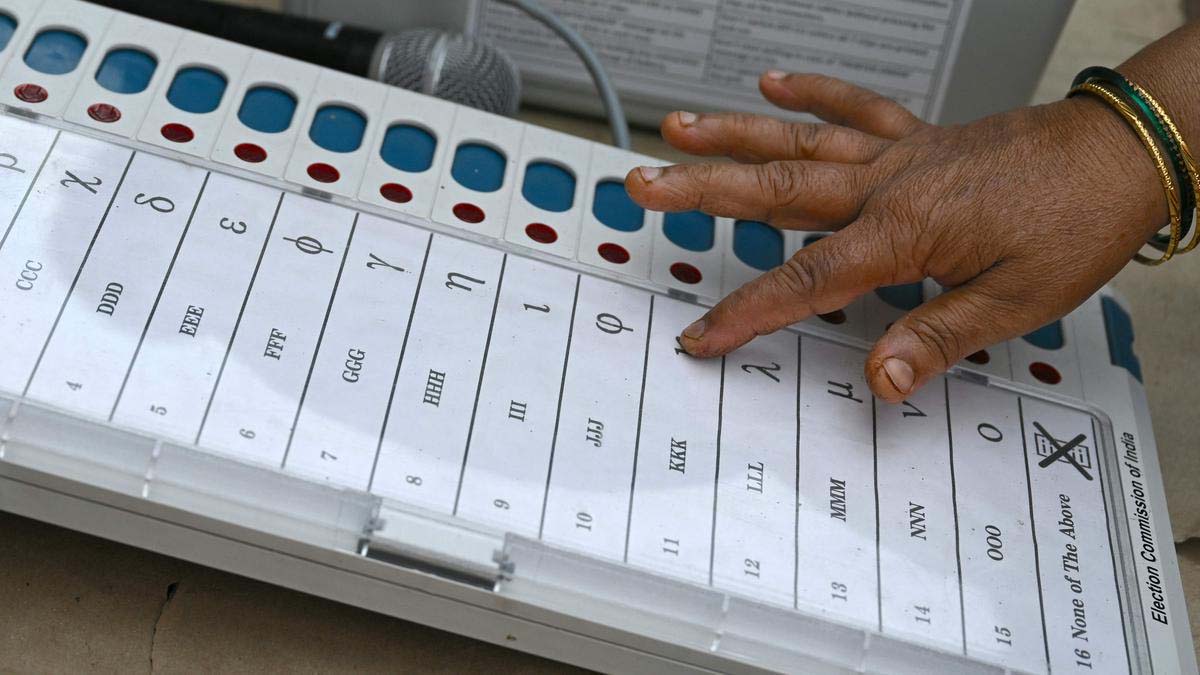The highly anticipated Lok Sabha election for 2024 commences on Friday, encompassing 102 constituencies in 21 states and Union Territories for the inaugural phase of the seven-phase elections.
Polling officials, electronic voting machines (EVMs), and security personnel have begun arriving at polling locations throughout the nation. The 102 parliamentary constituencies are composed of 73 General, 11 Scheduled Tribe, and 18 Scheduled Caste seats across the 21 states and UTs.
Concurrent legislative assembly polls will transpire in Arunachal Pradesh and Sikkim on Friday. This first phase includes the largest number of parliamentary constituencies in comparison to the other phases. Voting begins at 7 am and concludes at 6 pm (local timing may vary across different constituencies), the Election Commission stated on Thursday.
Officials deployed to polling sites
Over 1.8 million polling officials will oversee the voting process for more than 166 million eligible voters across 187,000 polling stations on Friday. These officials have arrived at their designated stations, fully equipped for the electoral exercise. Their duties include verifying the receipt of all necessary polling materials and completing relevant documentation.
The Election Commission of India (ECI) has stationed 361 observers (127 General Observers, 67 Police Observers, 167 Expenditure Observers) in their constituencies ahead of the election. “They act as the Commission’s vigilant watchdogs, ensuring close monitoring. Additionally, Special Observers have been allocated in select states,” the ECI declared on Thursday.
A total of 4,627 Flying Squads, 5,208 Statistics Surveillance Teams, 2,028 Video Surveillance Teams, and 1,255 Video Viewing Teams maintain constant surveillance to promptly address any voter inducement attempts. Furthermore, 1,374 inter-state and 162 international border checkpoints vigilantly guard against the illicit movement of liquor, drugs, cash, and incentives. Heightened security measures have also been implemented along maritime and aerial routes, according to the ECI.
The deployment of 41 helicopters, 84 special trains, and nearly 100,000 vehicles aids in the transportation of polling and security personnel.
Phase 1 Insights
Over 1.4 million registered voters aged 85 and above and 1.3 million differently-abled voters in the 102 parliamentary constituencies have been afforded the option to vote from home. This optional home voting provision has garnered significant positive reception and engagement.
Voters over the age of 85 and differently-abled voters opting to visit polling stations will receive comprehensive accommodations, including transportation services, signage, braille instructions on EVMs, and volunteer assistance. Differently-abled voters can also reserve wheelchair services via the ECI Saksham app.
Minimum standard amenities such as water, shelter, restrooms, ramps, volunteers, wheelchairs, and power supply have been established to facilitate smooth voting for all individuals, including the elderly and differently-abled voters.
The establishment of model polling stations across the 102 parliamentary constituencies showcases local themes. More than 5,000 polling stations are managed entirely by women, including security personnel, while over 1,000 stations are overseen by differently-abled individuals.
Voter information slips have been distributed to all registered voters, serving as a guiding measure and an invitation from the Commission to participate in the electoral process.
Information for Voters
Voters are advised to be wary of misinformation and false news that could influence their decisions or discourage participation in the elections, particularly against deceptive narratives spread via social media. All inquiries, clarifications, and misconceptions can be verified in the Commission’s Myth vs. Reality register available at https://mythvsreality.eci.gov.in/. Voters are encouraged to confirm information using these trusted and credible sources before spreading it further.
The ECI KYC app and the candidate affidavit portal (https://affidavit.eci.gov.in/) provide comprehensive information on contesting candidates, including their assets, liabilities, educational history, and any criminal records. Nearly 47,000 authority letters have been issued to media personnel across the 21 states and UTs for polling day coverage. International media has received special accommodations.
Both media personnel and other stakeholders can monitor voter turnout through the ECI Voter Turnout App, which is updated regularly on election day. Additionally, the Commission has launched a dedicated website for the 2024 elections, providing all pertinent information related to the general elections in one location: https://elections24.eci.gov.in/.
Background
Over the past two years, the Commission has visited multiple states and UTs to assess election preparedness. Interaction with political parties, law enforcement agencies, and key officials from various states and UTs was conducted.
Numerous conferences and assessment meetings were held with Chief Electoral Officers and their teams to identify and address any gaps. A team of senior officers visited various states to evaluate overall election readiness, including law and order, specific areas of concern, and the requirement for Central Armed Police Forces.
As part of the review, the Election Commission of India convened a significant meeting with all states and UTs to examine the law and order situation, curb illicit activities, and monitor seizures and vigilance across inter-state and international borders. This comprehensive review aimed to ensure free, fair, peaceful, and inducement-free elections for the Lok Sabha and state legislative assemblies in 2024.
The objective of these collective reviews was to bring together all relevant stakeholders for seamless collaboration and coordination among officials from neighboring states/UTs and central agencies managing the borders. The Commission meticulously examined critical issues relevant to each state and UT.




